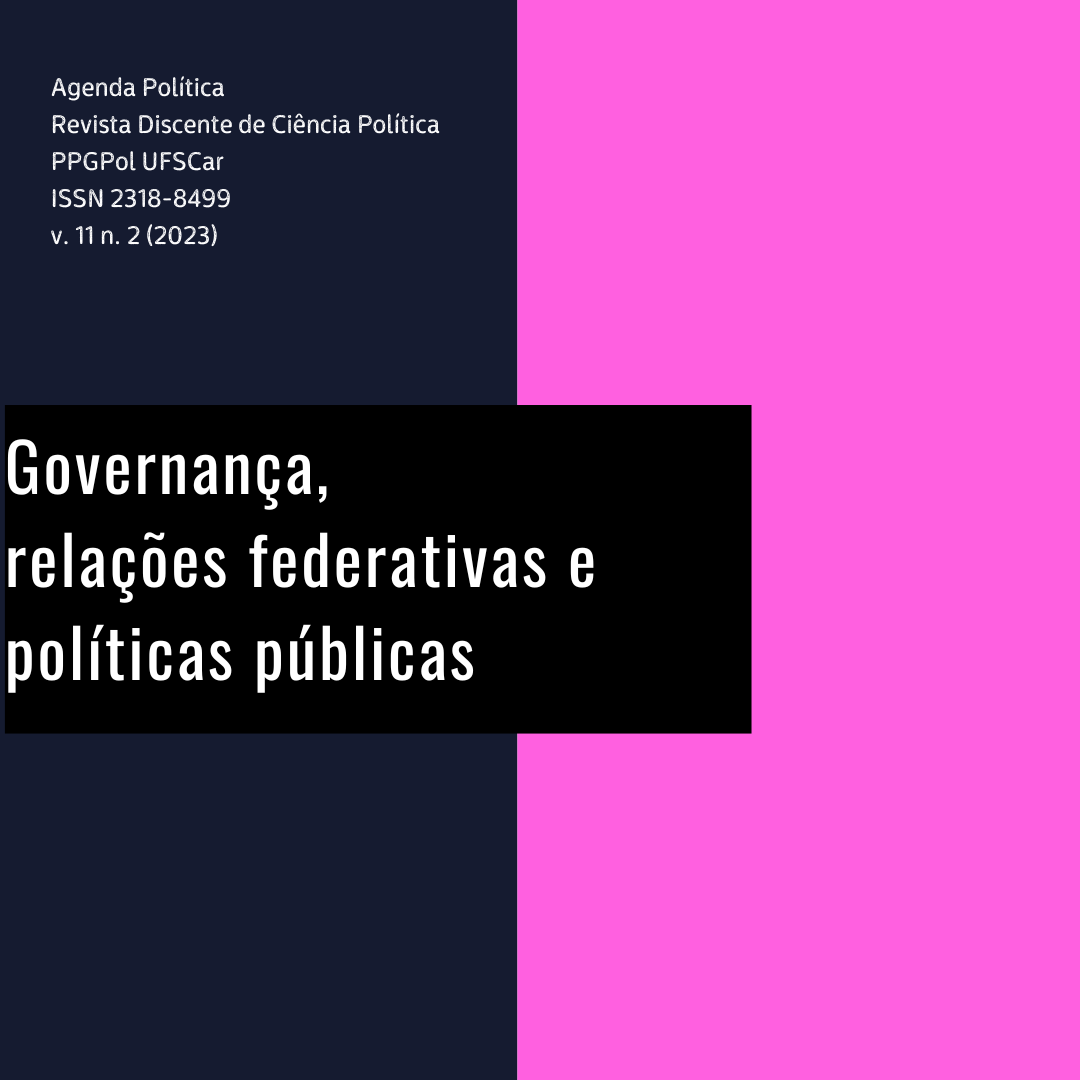Bolsa Família and COVID-19
mapping a cosmogram through Actor-Network Theory in Araraquara-SP
DOI:
https://doi.org/10.14244/agenda.2023.2.6Keywords:
Bolsa Família, COVID-19, cosmogram, sociothecnical network, Actor-Network TheoryAbstract
The main objective of this research is to follow the actors involved in the Bolsa Família Program (PBF) and outline the network that forms the program — whether these actors are human or non-human. To the extent that the PBF is endowed with agency, it constitutes a specific social space — a sociotechnical network — that mobilizes categories and generates changes and impacts on society. The objective of this research is to follow the human and non-human actors involved in the Bolsa Família Program (PBF) and outline the network that forms the program. To this end, the research uses ethnography. In this sense, we start from the hypothesis that the PBF is hybrid because it constitutes a network that passes through science, society and discourse, being, therefore, real, collective and discursive. Therefore, it is social in Latour's terms. Taking as a premise the idea that social aggregates need to be explained and not taken as an explanation, the social is composed of a principle of connections. There is no “sphere of politics” and “sphere of science”. As a crucial empirical space for this study, there is the Municipal Social Assistance Secretariat (SMADS), which is a reference place for social protection in Brazil together with the Social Assistance Reference Centers (CRAS). The leading role of SMADS is due to the fact that it is the space where the management of the Cadastro Único and the management of the PBF are allocated, thus being responsible for families' contact with the State's social programs. What emerges, therefore, is that such a vision will allow us to perceive the social, economic and cultural phenomena that constitute it in its magnitude, as well as, to perceive the PBF as an encounter between beneficiaries and the State, which, finally, will allow us to understand how such disputes arise over the meanings mobilized within the implementation of the PBF, outlining its network and cosmogram.
References
ANJOS, J. C. G. Remanescentes de quilombos: reflexões epistemológicas. In: LEITE, I. B. (Org.). Laudos periciais antropológicos em debate. Florianópolis: NUER/ABA, p. 89 – 112, 2005.
FLORIANO, G. de M. De “dentro” e de “fora” do Estado: um estudo sobre percepções e práticas do Bolsa Família. Penápolis: Editora Sociologia, Política e Cidadania, 2020.
GIUMBELLI, E. Para além do “trabalho de campo”: reflexões supostamente malinowskianas. Revista Brasileira de Ciências Sociais, v. 17, n. 48, fev. 2002.
LATOUR, B; TARDE, G. And the end of the social. In: JOYCE, Patrick (Ed.). The Social in Question: New Bearings in History and the Social Sciences. Londres: Routledge, p.117-132, 2002.
LATOUR, B. Como terminar uma tese de sociologia: pequeno diálogo entre um aluno e seu professor (um tanto socrático). Cadernos de Campo, 14/15, p. 339-352, 2006.
LATOUR, B. Reagregando o social: uma introdução à teoria do Ator-Rede. Bauru, São Paulo: EDUSC, 2012.
LATOUR, B. Jamais Fomos Modernos. São Paulo: Editora 34, 2013.
LATOUR, B et al. Múltiplos e animados modos de existência: uma entrevista com Bruno Latour. Revista de Antropologia, 57(1), p. 499-519, 2014.
LATOUR, B. Cogitamus: seis cartas sobre as humanidades científicas. São Paulo: Editora 34, 2016.
MÜLLER, A. M. O jornal como fonte de pesquisa histórica e antropológica: entre o monologismo e a polifonia. Biblos, 1, 3ª série, p. 269-286, 2015.
ROCHA, S. Transferências de Renda no Brasil: o fim da pobreza? Rio de Janeiro: Elsevier, 2013.
TARDE, G. Monadologia e sociologia: e outros ensaios. São Paulo: Cosac Naify, 2007.
TARDE, G. As leis sociais: um esboço de sociologia. Niterói: Editora da UFF, 2011.
Downloads
Published
How to Cite
Issue
Section
License
Copyright (c) 2024 Revista Agenda Política

This work is licensed under a Creative Commons Attribution 4.0 International License.
Direito Autoral
Autores mantém os direitos autorais e concedem à revista o direito de primeira publicação, sendo o trabalho simultaneamente licenciado sob a Creative Commons Attribution License o que permite o compartilhamento do trabalho com reconhecimento da autoria do trabalho e publicação inicial nesta revista.
- As ideias e opiniões expressas no artigo são de exclusiva responsabilidade do autor, não refletindo, necessariamente, as opiniões da revista.
- Após a primeira publicação, o autor tem autorização para assumir contratos adicionais, independentes da revista, para a divulgação do trabalho por outros meios (ex: publicar em repositório institucional ou como capítulo de livro), desde que feita a citação completa da mesma autoria e da publicação original.
- O autor de um artigo já publicado tem permissão e é estimulado a distribuir o seu trabalho on-line, sempre com as devidas citações da primeira edição.





